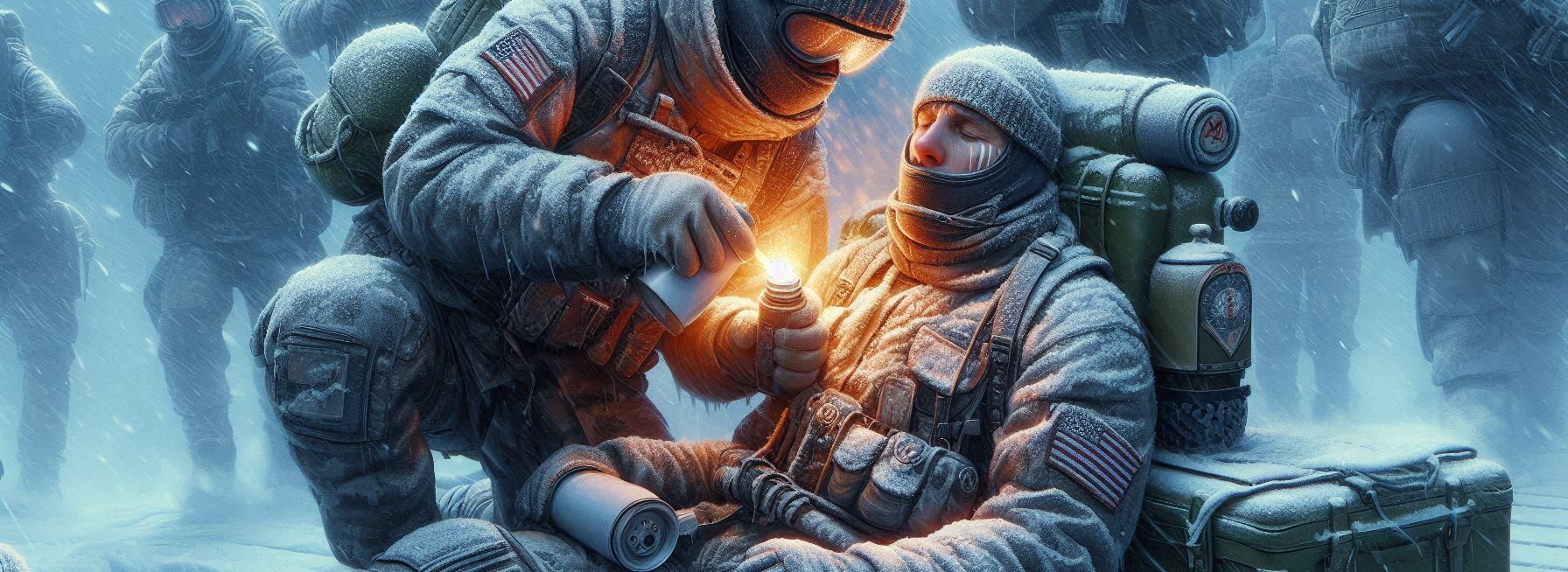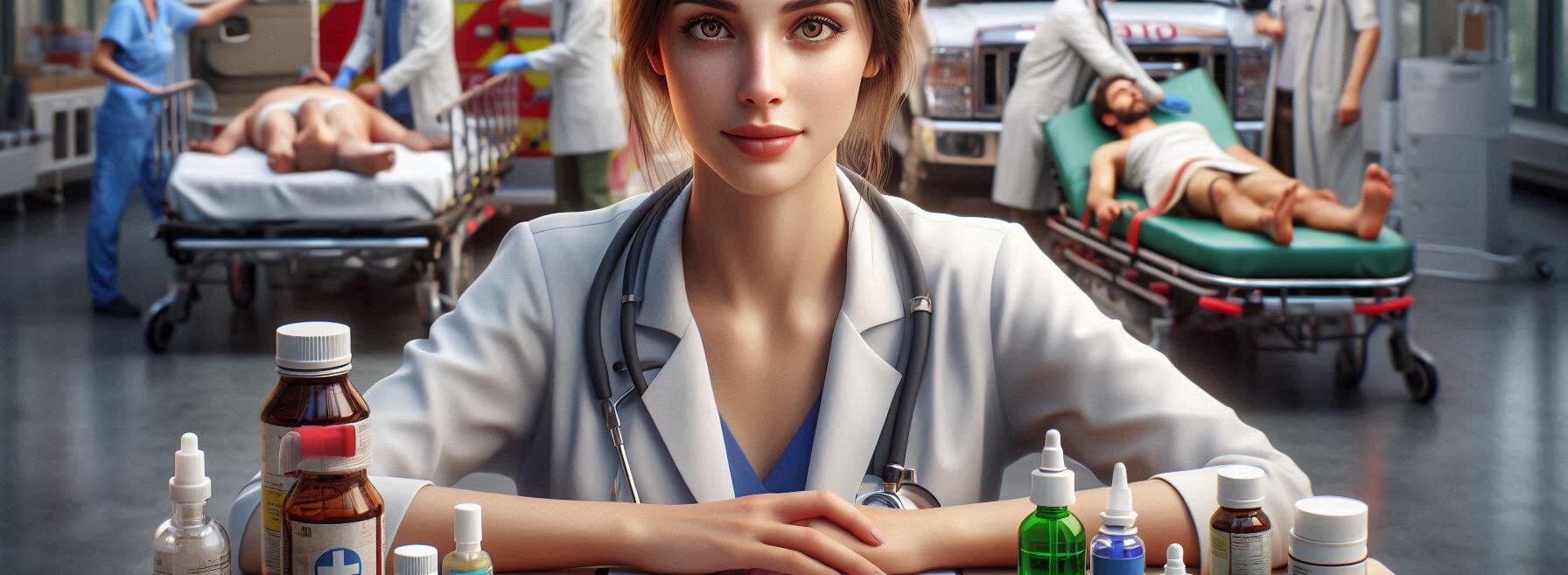Last Updated on November 2, 2025 by Kevin Collier

Top Takeaways and Key Concepts
- Start a home medicine stockpile with painkillers, cold medicine, and first-aid supplies.
- Include family-specific medications like children’s cough syrup or adult prescriptions.
- Store medicines in cool, dry places and rotate regularly to avoid expiration.
- Build a first-aid kit with bandages, antiseptic wipes, gauze, gloves, and scissors.
- Teach household members how to use medicines and practice basic first-aid skills.
It's important to get ready for crises, right? Having extra supplies for a zombie apocalypse sounds like a good idea, but what about your health?
If you have a cold or a bad headache, a stash of canned beans won't help much. That's where medicine comes in. You should be ready for everything, even a cold or a stomachache.
Please Note: This post may contain affiliate links. If you click one of them, we may receive a commission at no extra cost to you. As an Amazon Associate, I earn from qualifying purchases.
Let's speak about how to make your own pharmaceutical stockpile. You don't have to be scared or overwhelmed by this. Imagine this: A nice small space in your home where you may keep band-aids, painkillers, and allergy medicine. Doesn't that sound nice?
Start small. Grab some basic stuff first. Things like painkillers, cold medicine, and maybe even some allergy pills. Yes, they’re good to have. Don’t forget the first-aid supplies. Band-aids, antiseptic wipes, and gauze can be lifesavers.
Think about your family, too. Do the kids have anything they might need? Maybe a favorite cough syrup or something for tummy troubles?
Once you have the basics, keep an eye on dates. Medicines can expire, and you want to be prepared, not scrambling to find out your stuff went bad. It’s pretty simple to switch them out as you use them.
Building up this stash is like giving yourself a warm hug. You get to feel safe and ready for whatever life throws your way. You’ll be the hero of your own story, and who doesn’t want that?
So grab those supplies when you can. Stocking up on medicine isn’t just practical; it’s a way of caring for yourself and your loved ones. Because you never know when those zombies, or just a regular cold, might pop up!
Contents of This Page
*** Shop for Survival Gear - Tools - Kits ***
Survival Gear - Bags and Backpacks - Knives - Boots/Footwear - Communication
Outdoor Cooking - Gloves - Hydration - Dry Boxes - Water Filtration Systems
Tents - Sleeping Bags - First Aid Kits - Multi-Tools - Flashlights - Fire Starters
Navigation - Survival Food - Night Vision - Headlamps - Stun Guns - Binoculars
Understanding Your Needs
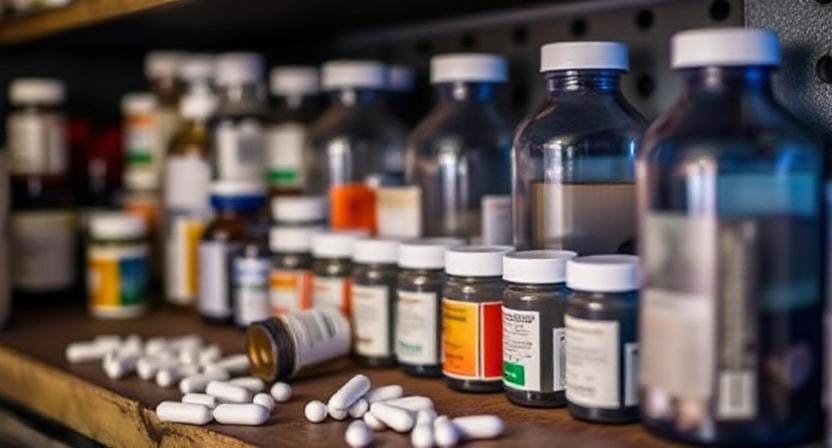
First things first: you need to understand what types of medications are essential for your household. This isn't just about hoarding every pill known to mankind like some sort of pharmaceutical squirrel.
Instead, think practically about your family’s health needs. Do you have kids who seem to get sick at the drop of a hat? Or perhaps an adult with chronic conditions that require regular medication?
By the way, don’t forget about over-the-counter meds! You’ll want plenty of pain relievers like ibuprofen and acetaminophen—because nothing ruins a camping trip faster than someone whining about a headache while trying to roast marshmallows.
And let's not overlook allergy medications; those pesky pollen clouds can turn any outdoor adventure into an itchy nightmare.
Where to Start Stockpiling
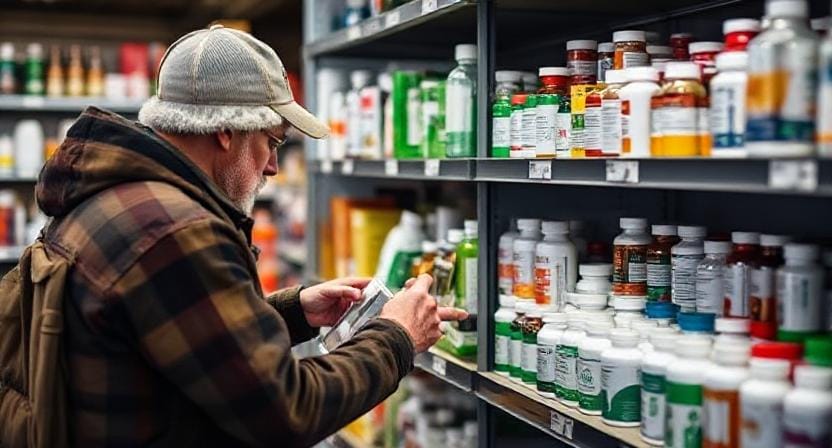
Now that you've got a list in hand, where do you start? Honestly, local pharmacies are great places to begin—but they might not appreciate you showing up every week like it’s Black Friday sales day.
Instead, consider online retailers or warehouse clubs where bulk purchasing is encouraged. Buying in larger quantities can save money and ensure you have ample supplies when the world goes haywire.
Speaking of which, keep an eye out for expiration dates! Nothing says “I’m prepared” quite like discovering that all your carefully stocked medicines expired last year during a crisis when you're desperately searching for relief.
Regularly check your supplies and rotate them out—think of it as giving your medicine cabinet its own little spa day!
Building Your First-Aid Kit
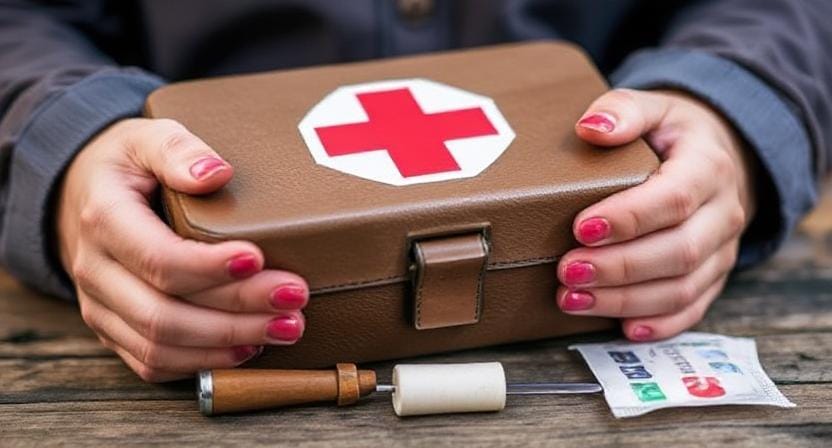
While we’re at it, don't forget about building a solid first-aid kit along with your medicine stockpile. A well-stocked first-aid kit should include adhesive bandages (for those inevitable scrapes), antiseptic wipes (to prevent infection), gauze pads (because nobody wants blood on their favorite shirt), and medical tape (which sticks better than my dog when he thinks I'm leaving without him).
Also include items like tweezers for splinters and scissors because sometimes it's necessary to cut away clothing or other stuff without resorting to wild gestures reminiscent of bad action movies. Oh, and throw in some gloves! They’re handy when dealing with injuries—nobody wants dirt under their nails while playing doctor.
Storing Medications Properly
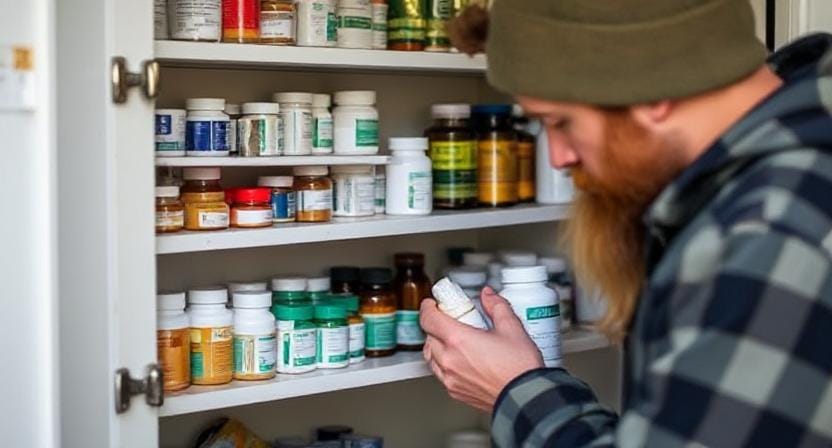
All things considered, once you've amassed your stockpile, proper storage becomes paramount. Keep medications in cool, dry places away from direct sunlight—your bathroom shelf may seem convenient but is often too humid thanks to steamy showers. An attic might sound tempting until summer hits; trust me on this one.
Consider using airtight containers labeled clearly so everyone knows what’s inside—imagine opening a box only to find expired cold medicine instead of the much-needed antihistamines!
And it's fascinating that keeping track of your inventory on paper or digitally might save you time in crises when you don't want someone to have to go through boxes to find that one elusive bottle.
Getting Ready for Unusual Events
On the other hand, we shouldn't forget about unique situations like natural catastrophes or pandemics where access could be hard to get. In certain situations, having additional prescription drugs on hand could save your life.
Talk to your doctor about getting refills ahead of time. Many will be happy to help if they know you're being responsible.
You might also try herbal cures or supplements that are good for your health. Just be sure they're safe and have been vetted by someone who understands more than just what Google says!
In an emergency, there's no point in attempting something new unless you're confident it won't lead to disaster later on, even if it sounds like fun at the time!
Keeping Everyone Informed
After building up your medicine stockpile, sharing is key. Think about it like this: if there’s a little emergency, everyone should know what’s what. When family members know where everything is, it can really help calm those nerves. Nobody wants to be running around looking for stuff while the sky is falling.
It’s a good idea to show everyone in the house how to use the medicine, too. Maybe set aside a fun afternoon to go over everything. Take out the pain relievers, demonstrate how to use a band-aid, and explain what each medicine is for. You’d be surprised how just knowing can make people feel a lot better.
Training sessions can be super helpful. Teach basic first aid skills, too. Everyone should feel like a little superhero when it comes to safety. You never know when Uncle Bob might trip over something while trying to impress everyone with his camping skills. Those stunts can be wild!
When everyone knows what to do, it lowers that crazy panic level in any crisis. It feels great not to be clueless. Sharing knowledge turns a scary situation into something manageable.
So, gather the family, pull out your medicine stash, and get to it. Make it fun! You’re building a team. A team that’s ready for anything life throws at you—zombie apocalypse or just a bad sneeze.
Frequently Asked Questions
What basic medicines should I stockpile first?
Start with painkillers, cold medicine, allergy relief, and basic first-aid supplies that are commonly used.
Should I include medications for each family member?
Yes, add specific items such as children’s cough syrups or prescription needs for adults or kids.
Where should medicine stockpiles be stored?
Store medicines in a cool, dry area away from sunlight to preserve potency and extend shelf life.
How often should I rotate stored medication?
Check expiration dates regularly and rotate newer medicine in as you use older products.
Is a first-aid kit part of a long-term medicine stockpile?
Yes, include bandages, gauze, gloves, antiseptic wipes, and other essential wound-care items.
Should the household be trained in basic first-aid?
Absolutely, teaching everyone basic skills and usage of supplies helps reduce panic in emergencies.
Can I ask my doctor for extra refills for preparedness?
Many physicians allow early refills for responsible emergency planning if you explain the purpose clearly.
Suggested Resources:
Basic Emergency Preparedness Guide
https://www.ready.gov/prepare
First Aid Basics
https://www.redcross.org/get-help/how-to-prepare-for-emergencies.html
How To Create a Home Medical Supply Kit
https://www.healthline.com/health/home-medical-supply-kit
Emergency Preparedness Supplies
https://www.cdc.gov/healthywater/emergency/preparedness/supplies.html

Kevin Collier is a seasoned survivalist and expert in prepping and homesteading, contributing to WiseSurvive.com. With a deep-rooted passion for self-sufficiency and outdoor survival skills, Kevin shares practical advice, strategies, and resources to help individuals prepare for any challenge. His informative articles cover a range of topics, from essential survival techniques to sustainable living practices, empowering readers to thrive in any situation. Whether you're a novice or a seasoned prepper, Kevin's insights will inspire you to take charge of your readiness and build resilience for the future.


